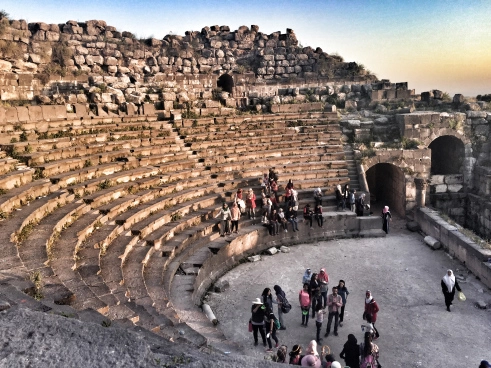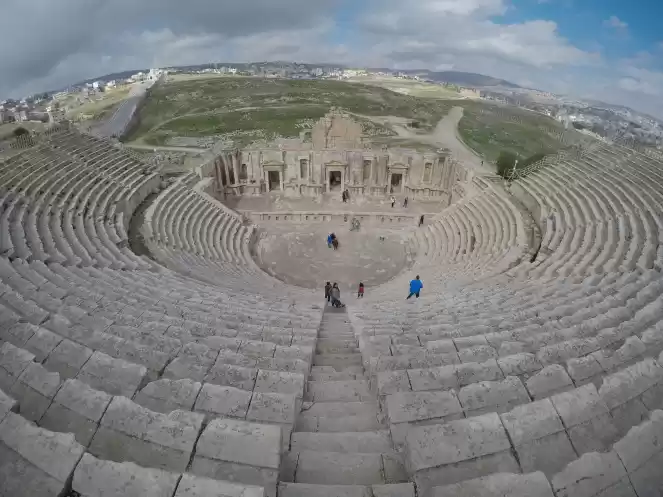Syria Tourism and Travel Guide
Syria (/ˈsɪ.rɪə/; Arabic: سوريا or سورية, Sūriyā or Sūrīyah), officially the Syrian Arab Republic, is a country in Western Asia. De jure Syrian territory borders Lebanon and the Mediterranean Sea to the west, Turkey to the north, Iraq to the east, Jordan to the south, and Israel to the southwest, but the government's control now extends to approximately 30–40% of the de jure state area and less than 60% of the population.A country of fertile plains, high mountains, and deserts, Syria is home to diverse ethnic and religious groups, including Syrian Arabs, Greeks, Armenians, Assyrians, Kurds, Circassians, Mandeans and Turks. Religious groups include Sunnis, Christians, Alawites, Druze, Mandeans, Shiites, Salafis, and Yazidis. Sunni Arabs make up the largest population group in Syria.In English, the name 'Syria' was formerly synonymous with the Levant (known in Arabic as al-Sham), while the modern state encompasses the sites of several ancient kingdoms and empires, including the Eblan civilization of the 3rd millennium BC. Its capital Damascus is among the oldest continuously inhabited cities in the world. In the Islamic era, Damascus was the seat of the Umayyad Caliphate and a provincial capital of the Mamluk Sultanate in Egypt.The modern Syrian state was established after World War I as a French mandate, and represented the largest Arab state to emerge from the formerly Ottoman-ruled Arab Levant. It gained independence as a parliamentary republic on 24 October 1945 when Syria became a founding member of the United Nations, an act which legally ended the former French Mandate – although French troops did not leave the country until April 1946. The post-independence period was tumultuous, and a large number of military coups and coup attempts shook the country in the period 1949–71. Between 1958–61, Syria entered a brief union with Egypt, which was terminated by 1961 Syrian coup d'état. The Arab Republic of Syria came into being in late 1961 after December 1 constitutional referendum, and was increasingly unstable until the Ba'athist coup d'état, since which the Ba'ath Party has maintained its power. Syria was under Emergency Law from 1963 to 2011, effectively suspending most constitutional protections for citizens, and its system of government is considered to be non-democratic. Bashar al-Assad has been president since 2000 and was preceded by his father Hafez al-Assad, who was in office from 1970 to 2000.Syria is a member of one international organization other than the United Nations, the Non-Aligned Movement; it is currently suspended from the Arab League and the Organisation of Islamic Cooperation, and self-suspended from the Union for the Mediterranean. Since March 2011, Syria has been embroiled in an uprising against Assad and the Ba'athist government as part of the Arab Spring, a crackdown that contributed to the Syrian Civil War and to Syria's becoming one of the least peaceful countries in the world. The Syrian Interim Government was formed by the opposition umbrella group, the Syrian National Coalition, in March 2013. Representatives of this alternative government were subsequently invited to take up Syria's seat at the Arab League.













